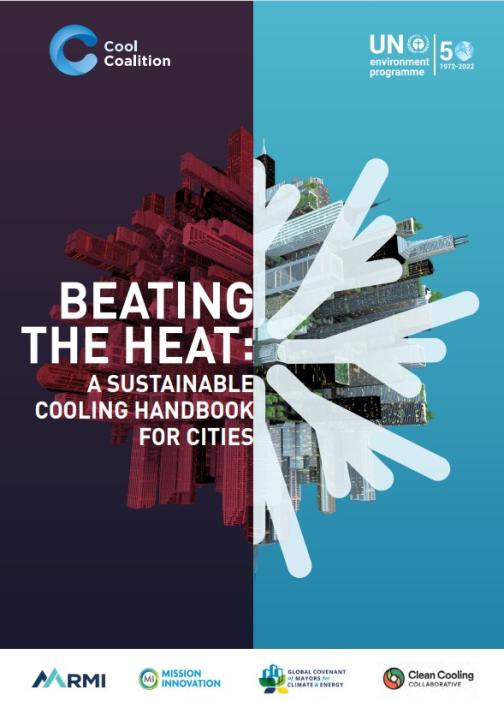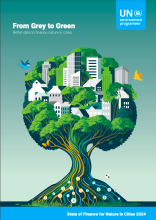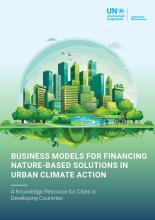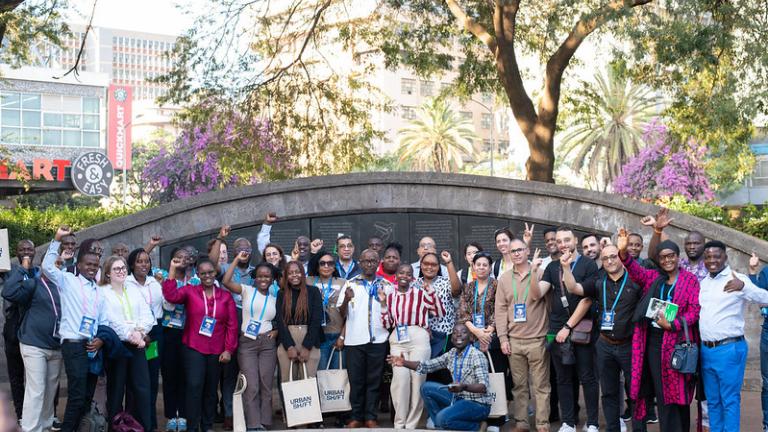Toolkit

Beating the Heat
A Sustainable Cooling Handbook for Cities
This handbook was launched at COP26 and provides case studies from cities around the world that demonstrate how to sustainably tackle the urban heat island effect.
With growing populations – predominantly in the tropics – and rapid urbanization, the impact of global warming is felt most acutely in cities. Research shows that the world’s cities are heating up at twice the global average rate due to the urban heat island effect – a phenomenon where urban areas experience higher temperatures than outlying areas due to a combination of diminishing green cover, heat gain and thermal properties of the materials commonly used in urban surfaces, as well as waste heat from human activities (such as industrial processes, transport and air conditioning).
This guide by UNEP offers planners an encyclopedia of proven options to help cool cities sustainably, providing improved health and productivity, economic benefits, and reduced power usage and emissions. The guide’s 80 supporting case studies and examples demonstrate the effectiveness of the strategies outlined and can help cities find an approach best suited to their unique contexts.
Learn more

Building Equitable Futures: Implementing a Just Transition in Urban Environments
In this webinar, urban climate leaders from Indonesia, South Africa, and China shared their countries’ latest efforts in implementing just transitions in urban settings.

From Grey to Green: Better Data to Finance Nature in Cities
From UNEP, this report highlights the need for better data and tools to help cities integrate Nature based Solutions (NbS) into their financial and planning frameworks.

Business Models for Financing Nature-Based Solutions in Urban Climate Action
This publication serves as a comprehensive guide to financing and developing business models for Nature-based Solutions (NbS) addressing climate challenges in urban areas.

How African cities can develop to become green, resilient, and inclusive
During the Green & Resilient UrbanShift Africa Forum, leaders from across the continent united to learn and share insights on accelerating transformative urban planning approaches—and the finance needed to implement them.
